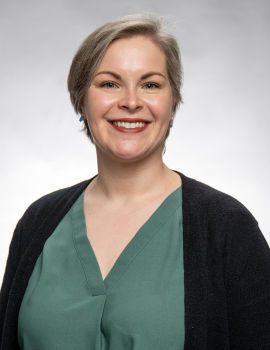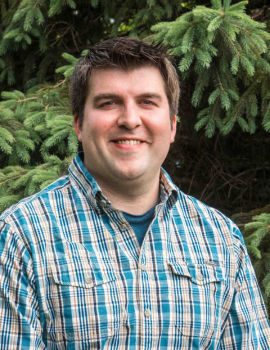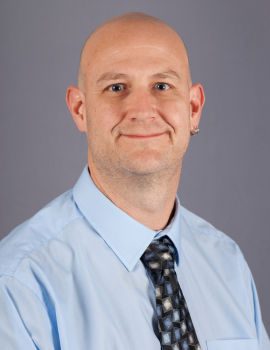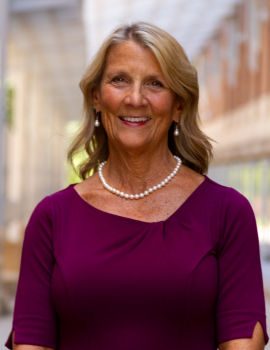Sustainability Awards for Educators
The ACS Campaign for a Sustainable Future aims to advance chemistry innovations to address the challenges articulated in the U.N. Sustainable Development Goals through green and sustainable chemistry education.
Awards & Fellowships for Chemistry Educators
Rising Stars in Green Chemistry Education Award
For outstanding early-career scholars who have committed to focus on green chemistry and/or sustainability in curricula for teaching chemistry, chemical engineering, or a closely related field.
Deadline: September 20, 2024
Teaching Green Fellowship
For undergraduate educators who have demonstrated innovation and creativity in the development of new and/or significantly updated curricular materials infused with green chemistry and/or sustainability concepts.
Deadline: September 20, 2024
Career Achievement in Green Chemistry Education
For undergraduate instructors who have made a profound and transformative impact on the future of green chemistry and sustainability in education throughout their career.
Deadline: September 20, 2024
Meet the 2024 Awardees
A heartfelt congratulations to the four winners selected for this year's ACS Sustainability Awards for Educators!
Rising Stars in Green Chemistry Education Awards
Drs. Rebecca Haley and Michael Wentzel were selected for outstanding efforts as early-career scholars in their commitments to centering green chemistry and sustainability in their teaching curricula.

Assistant Professor of Chemistry
University of Wisconsin-River Falls
About: Rebecca Haley teaches organic chemistry courses, leads a team of research students, and is the coordinator for the Peer Led Team Learning program for General Chemistry I. In all her classes, Dr. Haley is dedicated to centering undergraduate students in the learning process. To support this work, she participated in the Wisconsin Teaching Fellows and Scholars program as a fellow for the 2022-23 year, and in 2023 was granted a Dr. Keith G. Wurtz award that recognizes outstanding and innovating teachers at UWRF.
Dr. Haley incorporates green chemistry topics in the curriculum and helps other educators do the same by being a Module Developer for the Green Chemistry Module Project with the ACS GCI. She has also designed several standalone green chemistry courses for in-person and online formats. These courses help students with chemistry majors or minors develop a deeper understanding of how to incorporate green chemistry and systems thinking into their fields of interest.
In the lab, Dr. Haley and her team work on reactions that traditionally use toxic solvents for C-C bond formation and optimize them under mechanochemical conditions where solvent is not necessarily required. Most recently, they have been working on cross-electrophile coupling (XEC) reactions with the help of an Undergraduate New Investigator Grant from the ACS Petroleum Research Fund. Dr. Haley enjoys being involved with the ACS and has served a term as secretary for the ACS Minnesota Local Section (2021-2023). Prior to her work in the northern Midwest, Dr. Haley earned her degrees in chemistry from University of Cincinnati (Ph.D.) and Wheeling Jesuit University (B.S.).

Chair and Associate Professor of Chemistry
Augsburg University
About: As an organic chemist, Dr. Michael Wentzel is interested in developing new synthetic reaction methods. Michael was trained as an organometallic chemist using transition metals to develop new catalytic methods. These methods involved nitrogen-containing heterocycles and boronic acids as well as C-H and C-C sigma bonds. Michael has been at Augsburg since 2013 and previously worked there part-time while doing graduate and post-graduate work across the river at the University of Minnesota-Twin Cities. He is passionate about teaching and mentoring in the classroom, laboratory, and research settings. Michael has been influenced greatly by his Liberal Arts education and the wonderful professors he learned from and worked with. Michael appreciates that Augsburg students are trained to be strong chemists with a sense of purpose and service to others.
Dr. Wentzel’s research group is focused on the development of green synthetic methods. Currently, they have projects using a heterogeneous catalyst in a flow system, silylation of amines for alkylation, and the synthesis of biodegradable polymers for educational laboratories. The polymer research has been done in collaboration with the University of Minnesota-Twin Cities NSF-funded Center for Sustainable Polymers. Finally, he is extremely proud of the success of all former group members as they continue to be successful following graduation in their lives.
2024 Teaching Green Fellowship
Dr. Loyd Bastin was selected for demonstrating innovation and creativity in the development of updated curricular materials infused with green chemistry and sustainability concepts. This fellowship also requires a proposal for summer work for the awardee and provides a stipend for a student researcher.

Associate Dean of Science, Professor of Chemistry and Biochemistry
Widener University
About: Dr. Bastin holds a B.A. in chemistry and a Ph.D. in organic chemistry. At Widener, he is the Coordinator of Undergraduate Research, and he has taught organic chemistry, biochemistry, and sustainability since 2004. He has engaged more than 50 undergraduates in research projects related to the development of greener methods for synthesizing pharmaceuticals and new greener laboratory experiments for the undergraduate chemistry curriculum. Loyd has dedicated his academic career to the incorporation of sustainability and research into the undergraduate curriculum. He has several peer-reviewed articles and book chapters discussing the incorporation of sustainability, environmental justice, political advocacy, and green chemistry into the curriculum. He co-edited the book Integration of Green and Sustainability Chemistry Principles into Education and two special issues on “Advances in Green Chemistry Education” in Green Chemistry Letters and Reviews.
Research Proposal Summary: In 2012, Dr. Bastin designed a teaching module focused on the development of a greener synthesis of isoxazole derivatives. Isoxazole derivatives are utilized as antibiotics, anticonvulsants, and antiepileptics. Their wide biological activity has led to interest in the synthesis of new isoxazole derivatives. The traditional syntheses of diarylisoxazoles is inefficient and generates a large amount of hazardous waste. The chemicals used for the syntheses are corrosive, volatile, and carcinogenic. His group has developed a 4-step green synthesis of 3,5-diarylisoxazole derivatives that reduces waste production, toxic by-products, use of hazardous reagents, and is more energy efficient than the traditional synthesis of these molecules.
Moving forward, Dr. Bastin will explore modifications to the isoxazole synthesis that will provide additional pedagogical value for the experiment in an advanced or a sophomore organic chemistry lab. He will explore a variety of bromination and epoxidation methods for the chalcone intermediate. He will also continue to develop and refine the maleimide synthesis for the production of other derivatives and energy efficiency. He has developed methods to utilize a microwave reactor that significantly improved the efficiency of the second and third steps of the synthesis reducing energy use by 40x for the 2nd step and 5x for the 3rd step. Additionally, the products of the second and third steps could potentially demonstrate biological activity. In the summer of 2024, he will explore the bioactivity and toxicity of such maleimide derivatives and work to incorporate that into the organic chemistry II or biochemistry I lab curriculum. He will also continue his work on a separate political advocacy project that has been evolving for several years and has led to partnerships and connections with local non-profit organizations and chemistry industries.
2024 Career Achievement in Green Chemistry Education
Dr. Jane Wissinger was recognized with this prestigious award which is designated for instructors who have made a profound and transformative impact on the future of green chemistry and sustainability in education throughout their careers.

Professor Emerita
University of Minnesota
About: Jane Wissinger received her B.A. from Susquehanna University, M.S. from Georgia Institute of Technology, and Ph.D. in organic chemistry from Northwestern University. She was a research scientist at Rohm & Haas Co. for five years before beginning her academic career at the University of Minnesota as the Organic Chemistry Laboratory Director. In addition to modernizing the organic laboratory curriculum, she taught organic chemistry lecture courses as well as an upper-division green chemistry course. Wissinger’s teaching and research programs focused on the development of new curriculum materials for the college and high school levels that exemplified modern green chemistry methodology, advances in sustainable polymers, systems thinking, and guided inquiry pedagogy. She mentored undergraduates (44), graduate students (13), high school teachers (4), and postdoctoral fellows (3), many whom pursued green chemistry in their own careers.
Jane is a Senior Principal Investigator in the NSF Center for Sustainable Polymers and is passionate about education around designing better plastics. Though recently retired from teaching (August 2023), she remains active in promoting green/sustainable chemistry and the UN Sustainable Development Goals at the local, national, and international levels through high school teacher workshops, publications, and as a conference symposia organizer. Wissinger was recognized with a U of MN Morse-Alumni Distinguished Teaching Professor award (2014), an ACS-CEI Award for Incorporation of Sustainability in Chemistry Education (2018), and Brasted Award for Excellence in College Teaching (2021). Wissinger was named an ACS Fellow in 2023 for her professional achievements and service to the ACS. Wissinger serves on the ACS Committee on Environment and Sustainability and the IUPAC Interdivisional Committee on Green Chemistry for Sustainable Development.

